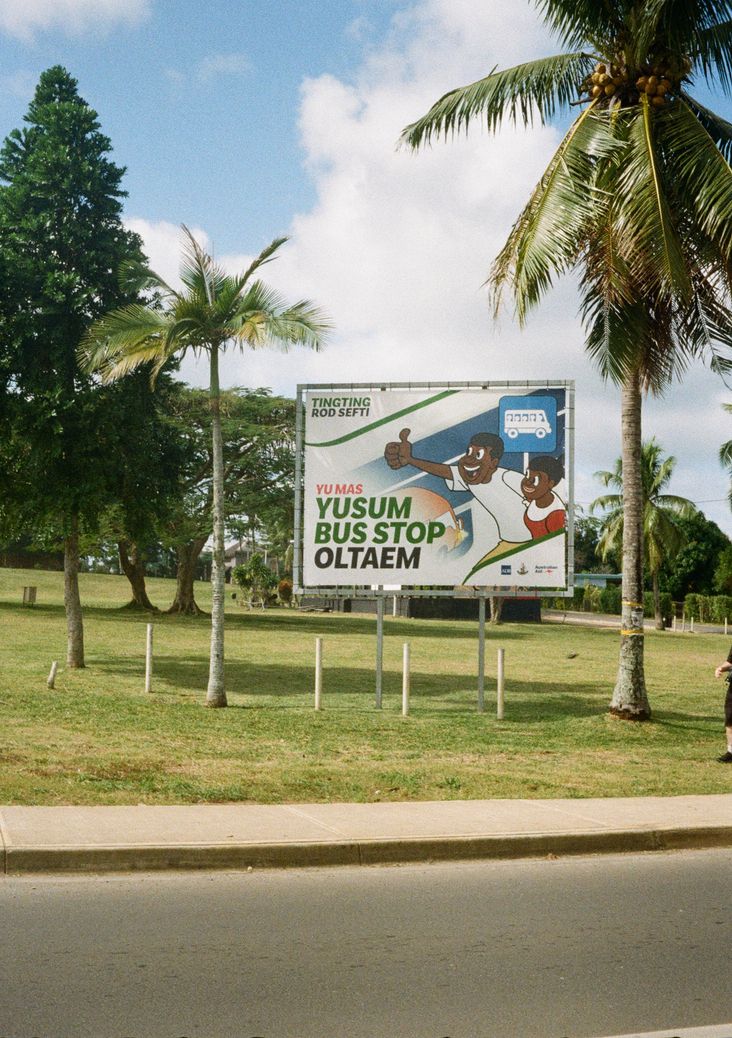Pronouns in Bislama
Bislama follows a system based on the Vanuatu native languages, similar to Māori, where the pronouns are gender neutral and they have different words depending on if the person or people being spoken to are included or excluded from the group identified by the pronoun.

Last year I went to Vanuatu for a couple of weeks and I picked up a some books on the language Bislama that is one of the main languages there. Bislama is a creole - a mix of European languages and the native languages of the islands. These are some notes I took of how pronouns work in Bislama compared to te reo Māori.
Bislama follows a system based on the Vanuatu native languages, similar to Māori, where the pronouns are gender neutral and they have different words depending on if the person or people being spoken to are included or excluded from the group identified by the pronoun.
Like Māori, Bislama also has different words for number of people in a plural group. Bislama differentiates singular, dual, trial, and more than three people. Bislama doesn't differentiate between subject (he/she/I) and object (him/her/me) forms of pronouns.
The following has the Bislama, followed by the Māori equivalent and then the English.
Singular
| Bislama | Māori | English |
|---|---|---|
| mi | au/ahau | I/me |
| yu | koe | you |
| em/hem | ia | he/him, she/her, it |
You, excluding speaker, including addressee:
| Bislama | Māori | English |
|---|---|---|
| yutufala | kōrua | you, two people |
| yutrifala | koutou | you, three people |
| yufala | koutou | you, plural |
Them, excluding addressee and speaker:
| Bislama | Māori | English |
|---|---|---|
| tufala | rāua | them, two people |
| trifala | rātou | three people |
| olgeta | rātou | them, plural |
We, including speaker and addressee:
| Bislama | Māori | English |
|---|---|---|
| yumitu | tāua | We, two people |
| yumitrifala | tātou | We, three people |
| yumi | tātou | We, plural |
We, including speaker, excluding addressee:
| Bislama | Māori | English |
|---|---|---|
| mitufala | māua | We, two people |
| mitrifala | mātou | We, three people |
| mifala | mātou | We, plural |
When using the pronouns in a sentence they can be followed by a predicate marker which separates the pronoun from the verb (Bislama is Subject, Verb, Object ordered). This marker is usually i. For the olgeta pronoun, it is oli. For mi, yu and yumi there is no predicate marker. For example:
| Bislama | Māori | English |
|---|---|---|
| mi sutum pijin ia | i puhi au i tēnei manu | I shot this bird |
| hem i sutum pijin ia | i puhi ia i tēnei manu | He/she shot this bird |
| olgeta oli sutum pijin ia | i puhi rātou i tēnei manu | They shot this bird |









Discuss this post on the /r/strandedio subreddit.
